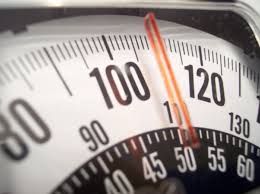
You’ve been adhering to a strict healthy eating and fitness plan for a while but are failing to see the results, it may be time take a look at what is sabotaging your success. From dieting blunders to physical factors, check out the top 10 reasons why you’re not losing weight.
You overcompensate for exercise
Many of us are familiar with the temptation to reward our workouts with an edible treat (well, you’ve just burned off all those calories, right?), however, it may be that by increasing your calorie intake to fuel or reward your sessions you are actually undoing all the hard work of your workout. In fact, as we often overestimate the calories we burn through exercise, you may even be taking in more than you have actually worked off, leading to weight gain rather than loss.
You’re not getting enough sleep
You may think that cutting back on sleep to make time for a workout is great for your health and fitness, however not getting enough sleep could actually minimise the benefits of exercise and cause you to gain weight. Not only does sleep deprivation affect exercise performance and endurance, but it slows down your metabolism, increases appetite and makes you more likely to give in to your cravings. Furthermore, lack of sleep can increase stress levels, which can contribute to weight gain.
You’re drinking too many sugary drinks
You watch what you eat, cut back on fatty foods and don’t snack between meals, but have you considered the amount of calories you may be drinking every day? While we all know the main calorie culprit when it comes to our drinks is alcohol, you should also consider the calories in fruit juice, smoothies, soft drinks and many hot drinks. Every calorie counts towards your daily intake, so don’t forget about the liquid ones!
You’re eating large portions
If you’re eating low fat, healthy meals but are still not losing weight, it may be worth looking at your portion sizes. While you may think that you’re only eating three meals a day, with the increasing portion sizes many of us consume you could actually be eating the equivalent of 6 or more standard serving sizes each day. It is worth remembering that although the food you’re eating may be healthy, it should still be eaten in moderation, as eating too much of anything will cause you to gain weight.
You’re eating too little
While eating too much food can cause you to gain weight, eating too little can also make it surprisingly difficult to shed those pounds. Your body has a natural instinct to protect itself so when it is not given an adequate amount of food it will automatically go into starvation mode, causing the metabolism to slow down and the body to hoard fat and calories. As a result of this it will become much more difficult for you to lose weight.
You don’t vary your workouts
If you’ve fallen into a rut with your exercise routine, you may no longer be getting the most out of your workouts. Not only can doing the same exercise activities over and over cause boredom to set in – which will make you less motivated and more likely to skip your workout – but it will also diminish the intensity. It will become much more difficult for you to lose weight.
You’re not consistent
Perhaps even worse for your metabolism and waistline than eating too much or too little is flitting regularly between the two extremes. If you constantly take up and abandon fad diets or go through a process of starving yourself one minute and bingeing the next, you will play havoc with your metabolism and cause your body to store more fat. As eating too little causes the metabolism to slow down, following this period with a binge will cause your body to quickly pile on the pounds.
You don’t need to lose weight
With the growing obesity problem in many parts of the world, it seems as though everybody wants to lose weight. However, although it is a fact that many people do need to shed the pounds, you may not be one of them. Rather than striving for an unrealistic body shape (and remember the lighter you are, the more difficult it will be to shed those pounds), ask yourself – and your doctor –honestly if there are medical reasons you need to lose weight. If not, it may be time to ditch the diet and start giving your self-esteem a workout instead.
Your weight isn't a true reflection of body fat
Many people obsess over their weight as a way of measuring how much body fat they have lost or gained. However, while a set of scales will tell you your weight, it will not tell you how much of that is fat, muscle or water, and therefore is not an accurate representation of fat loss. For instance, gaining muscle through a new fitness routine can slow down weight loss, as can fluid retention. For a more accurate indication of your body fat levels, try tracking changes in your measurements and the fit of your clothes, or get your body fat measured.
You have a medical condition
Many medical conditions such as polycystic ovary syndrome (PCOS), thyroid problems and hormonal imbalances can cause you to gain weight and make it very difficult to lose excess pounds. Also, hidden food allergies or intolerances can make it difficult to lose weight. Furthermore, while your medical condition itself may not cause weight gain, the side effects of certain medications may pile on the pounds, so make sure to speak to your doctor about this if you are struggling to lose weight.






